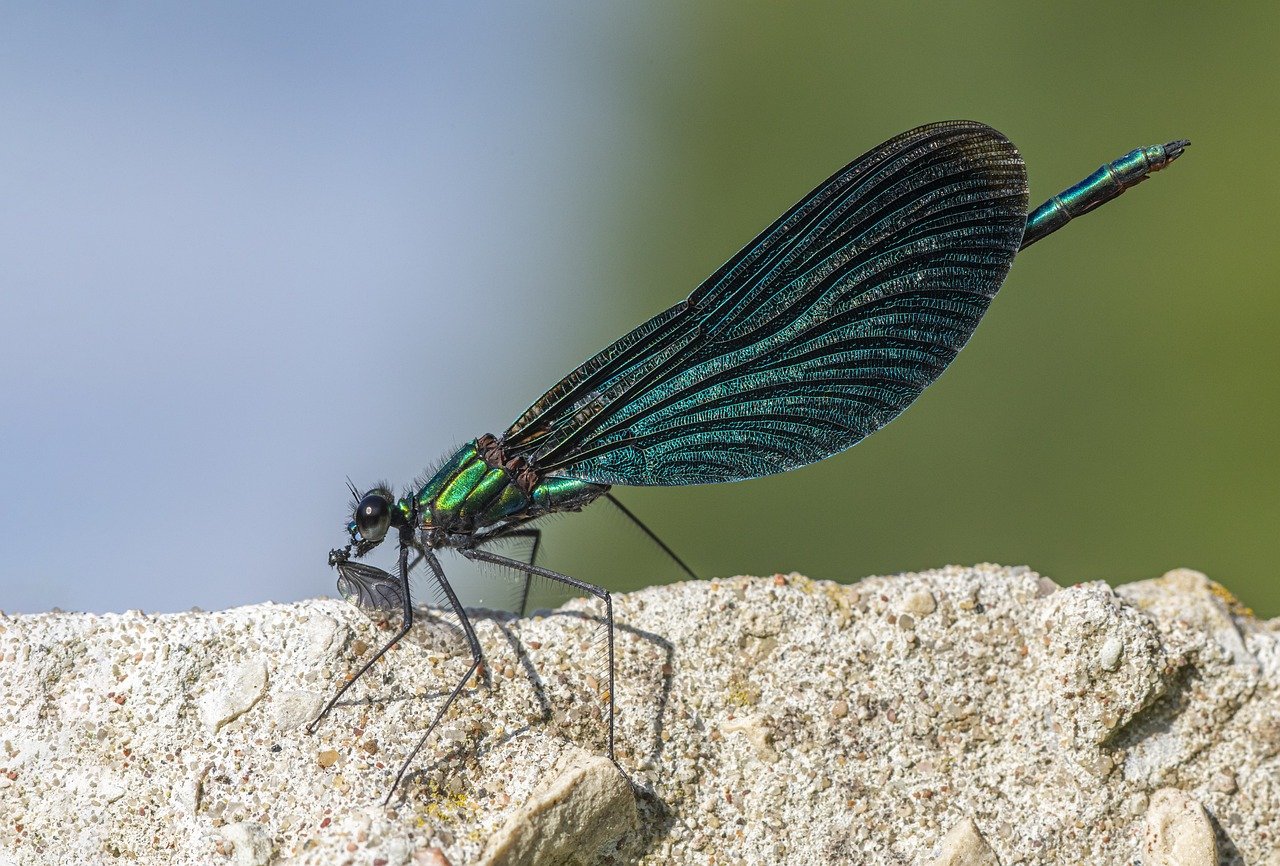The Beautiful Demoiselle (Calopteryx virgo) is a stunning species of damselfly belonging to the family Calopterygidae. Here’s a detailed description:
- Appearance: The Beautiful Demoiselle is a medium-sized damselfly with a length ranging from 45 to 50 millimeters. It has a slender body and long, delicate wings. Adult males have a striking metallic blue or green coloration on their body and wings, with dark patches near the tips of their wings. Females, on the other hand, typically have a more subdued appearance, with a metallic green or bronze body and clear wings.
- Habitat: Beautiful Demoiselles are commonly found near clean, flowing water, including streams, rivers, and small brooks. They prefer areas with abundant vegetation along the water’s edge, where they can perch and hunt for prey.
- Range: This species is native to various parts of Europe, including the British Isles, Scandinavia, Central Europe, and extending into Asia. It is widespread within its range and can be found in suitable habitats across different countries.
- Behavior: Beautiful Demoiselles are graceful fliers, often seen darting around their habitat or perching on vegetation near the water. They are predatory insects, feeding on small insects such as flies, mosquitoes, and other flying insects. Males are territorial and will defend their territory from intruding males.
- Reproduction: Like other damselflies, the Beautiful Demoiselle undergoes a complex life cycle that includes egg-laying in water, followed by larval development and emergence as adults. Mating typically occurs near water bodies, where females lay their eggs in submerged vegetation or directly in the water.
- Conservation: While the Beautiful Demoiselle is not considered globally threatened, it may face localized threats due to habitat loss, pollution, and changes in land use. Conservation efforts aimed at preserving clean, flowing water habitats and maintaining riparian vegetation can benefit not only the Beautiful Demoiselle but also other aquatic species.
The Beautiful Demoiselle is admired by enthusiasts and researchers for its elegance, coloration, and ecological importance as a predator in freshwater ecosystems. Understanding its habitat requirements and conservation needs is crucial for ensuring its long-term survival.
Visited 254 times, 3 visit(s) today
Views: 445
Subscribe to the newsletter:
